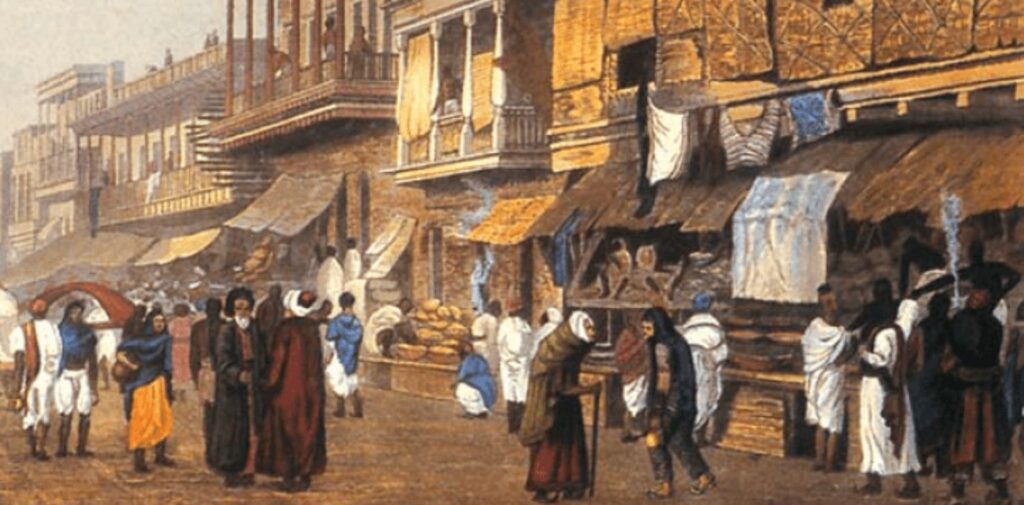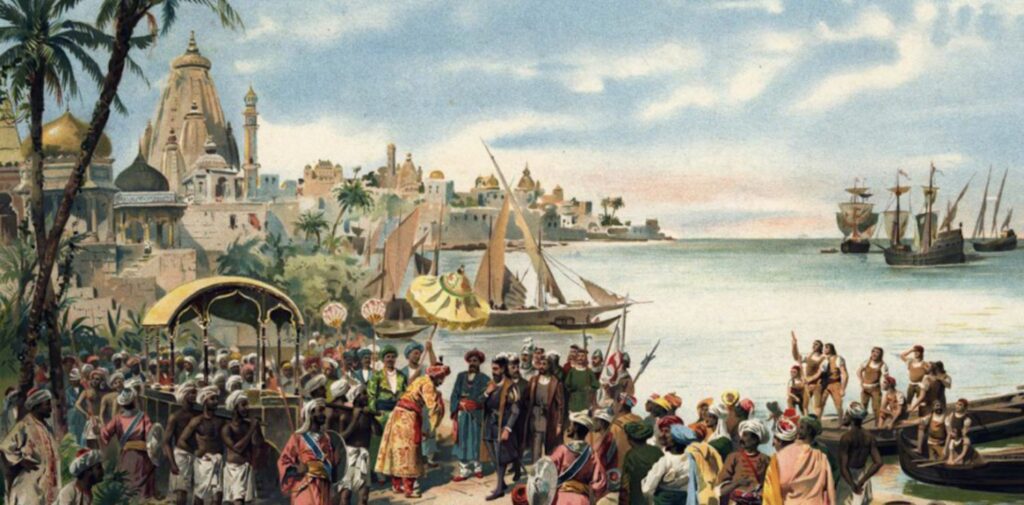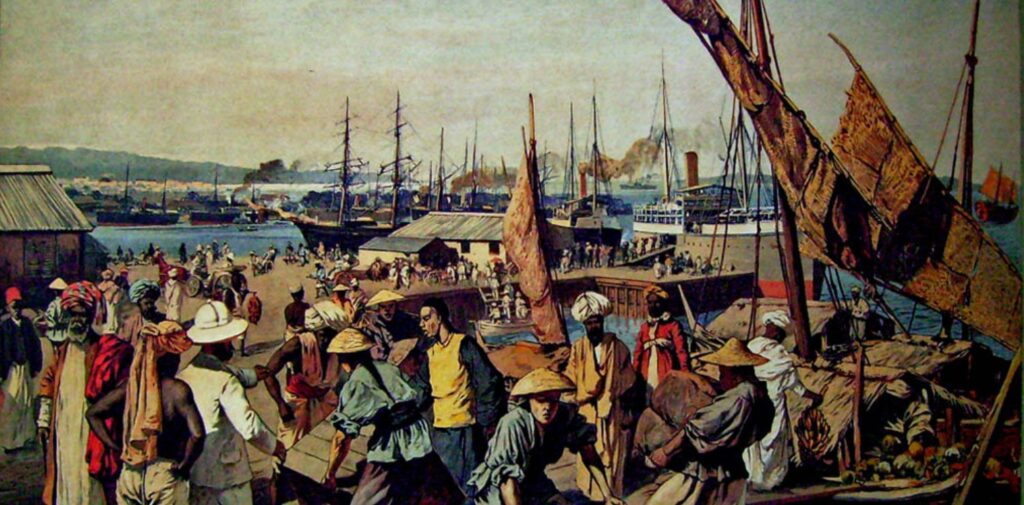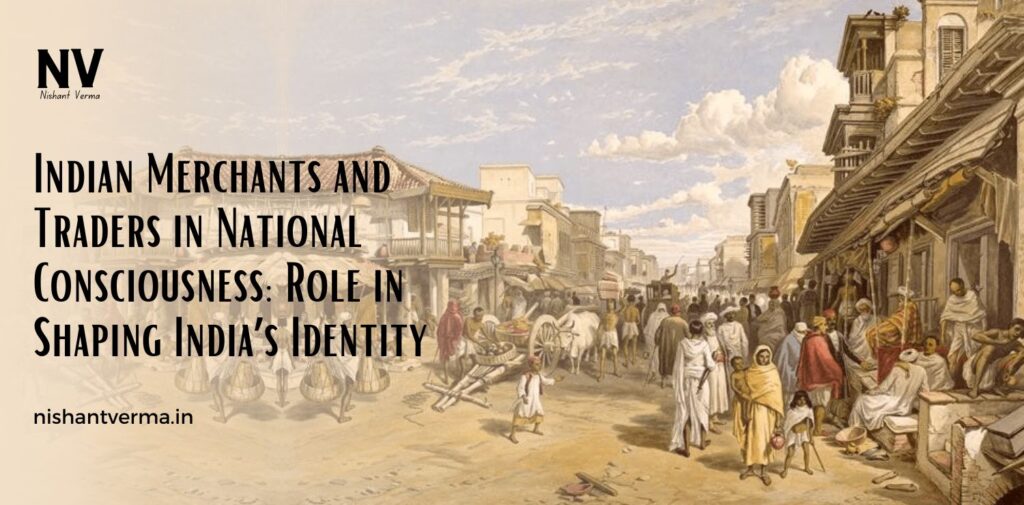In the rich and diverse history of India, merchants and traders have always played a significant role in the economic and social development of the country. The story of India’s commercial past goes beyond just trade routes and markets; it is deeply tied to the rise of national consciousness and independence. The merchants and traders in India were not just economic agents; they were also cultural ambassadors, social reformers, and political leaders in their own rights. They played a pivotal role in shaping the identity of the Indian nation during the colonial period and beyond. This article takes a closer look at how Indian merchants and traders contributed to the rise of national consciousness and what their legacy means today.
The Historical Importance of Indian Merchants and Traders
India has a long tradition of commerce and trade, with thriving markets and prosperous merchant communities dating back thousands of years. From the ancient trading routes of the Silk Road to the bustling ports of the Indian Ocean, Indian merchants were always central to the country’s economy. Cities like Calcutta, Bombay, Madras, and later Delhi, became key trading hubs during the colonial period.
However, the arrival of the British East India Company in the 17th century changed the dynamics of Indian trade. The British introduced a system where they controlled the trade, exploited Indian resources, and limited the freedom of Indian traders. Despite these challenges, the spirit of Indian merchants did not fade. In fact, it only grew stronger over time as they began to realize the importance of self-reliance and national unity.

The Rise of National Consciousness Among Merchants
- Economic Exploitation by the British: During the British colonial rule, the Indian economy was systematically drained. The British Empire extracted raw materials from India, processed them in Britain, and sold the finished goods back to India. This caused a huge imbalance in the local economy, hurting Indian traders and merchants who struggled to compete with cheap British imports. This exploitation led many traders to realize that economic freedom was just as important as political independence.
- Merchants as Patrons of Indian Industries: Indian merchants were at the forefront of the early nationalist movements. A significant number of them, such as the Marwari and Gujarati business communities, played a crucial role in funding and supporting Indian industries, particularly during the late 19th and early 20th centuries. By supporting indigenous industries, they helped reduce India’s reliance on British imports. This was a major step towards the self-sufficiency (Swadeshi) movement, which was one of the central elements of the Indian freedom struggle.
- The Role of Merchants in the Swadeshi Movement: One of the key turning points in India’s path to independence was the Swadeshi Movement of 1905. The movement called for the boycott of British goods and the promotion of indigenous products. Indian merchants and traders played a pivotal role in this movement by supplying and promoting Swadeshi goods. They supported Indian handicrafts, textiles, and other local products that were being overshadowed by British goods. This was not just a political statement, but also a way for Indian traders to show their support for the national cause.
- The Role of Business Leaders in Political Movements: As the Indian independence struggle gained momentum, many prominent Indian merchants and traders took on active political roles. Leaders like Lala Lajpat Rai, G.D. Birla, and others were key figures in the fight against British imperialism. These individuals used their wealth and influence to fund political movements, organize protests, and promote the idea of a free India. Their support helped sustain the nationalist efforts that eventually led to India’s independence.

The Influence of Merchants on Indian National Identity
Indian merchants and traders helped create a sense of unity among the people. They connected different regions of the country, making the idea of a unified India possible. By engaging in trade across different regions, they laid the groundwork for a sense of shared economic interests. This helped to transcend the cultural, linguistic, and religious divides that the British had used to keep the Indian people divided.
Merchants also played a major role in the dissemination of ideas. Through trade, they were able to share knowledge, culture, and political thought across the country. This exchange of ideas was crucial in forming a collective national consciousness. It also led to the spread of reformist ideas, particularly regarding the rights of Indian people and the importance of economic self-reliance.
The Legacy of Indian Merchants and Traders in Modern India
The legacy of Indian merchants and traders is still felt today in many aspects of Indian society. The merchant communities, especially those in Gujarat, Maharashtra, and other regions, continue to be some of the most prosperous groups in India. Their contributions to India’s economy and political life are immeasurable, and they remain an integral part of the fabric of Indian society.
In post-independence India, many of the business families who played a role in the freedom struggle continued to contribute to the country’s development. From industrial giants like the Birlas to entrepreneurs like Dhirubhai Ambani, Indian merchants and traders have been key drivers of India’s economic growth.
Today, the spirit of entrepreneurship and the values of self-reliance still form the bedrock of India’s business environment. Indian merchants and traders have transformed the Indian economy, propelling it to become one of the largest and fastest-growing economies in the world.

How Indian Merchants Helped Shape India’s Economy
- Support for Industrialization: Indian merchants were crucial in supporting and developing industries such as textiles, steel, and agriculture. They helped establish industries in key sectors like sugar production, cotton farming, and the steel industry. Through their support, they created jobs, helped develop infrastructure, and enabled the growth of Indian industries that were previously dependent on foreign capital and foreign markets.
- Establishment of Banks and Financial Institutions: Indian traders also helped establish the banking and financial sectors. Families like the Seths of Rajasthan, the Thakurs of Bihar, and the Agrawals of Uttar Pradesh were responsible for setting up banks, credit facilities, and other financial institutions that provided loans to small-scale businesses and farmers. This fostered economic growth and helped promote entrepreneurship in various sectors.
- Urbanization and Infrastructure: The work of Indian merchants and traders went beyond just economics; it also had a significant impact on the urbanization of India. Cities like Bombay, Calcutta, and Madras became bustling economic hubs, attracting people from rural areas seeking better opportunities. The merchants built infrastructure like markets, roads, and ports, which in turn improved connectivity and trade.
Conclusion: A Legacy of National Pride
Indian merchants and traders played an essential role in the formation of national consciousness and the rise of the Indian independence movement. Their contributions to India’s economic, political, and cultural life were invaluable, and they helped foster the spirit of self-reliance and unity that led to the independence of India in 1947. Today, the continued prosperity and growth of Indian business and commerce is a testament to the contributions of these visionary individuals. Their legacy is a reminder of the power of entrepreneurship, resilience, and national pride in the face of adversity.




